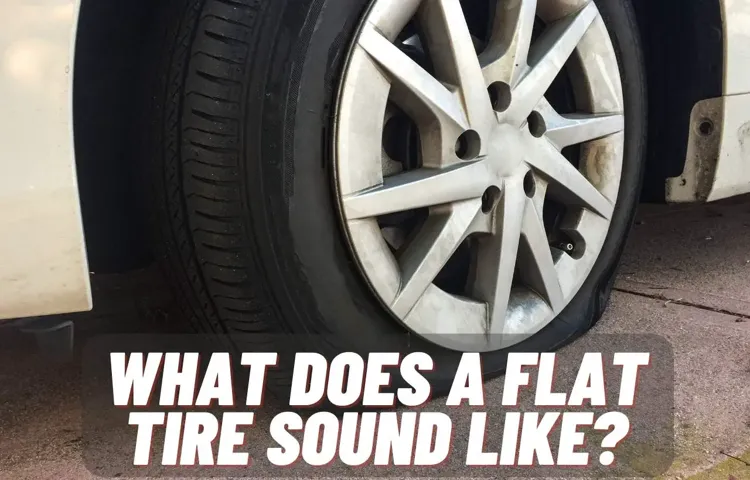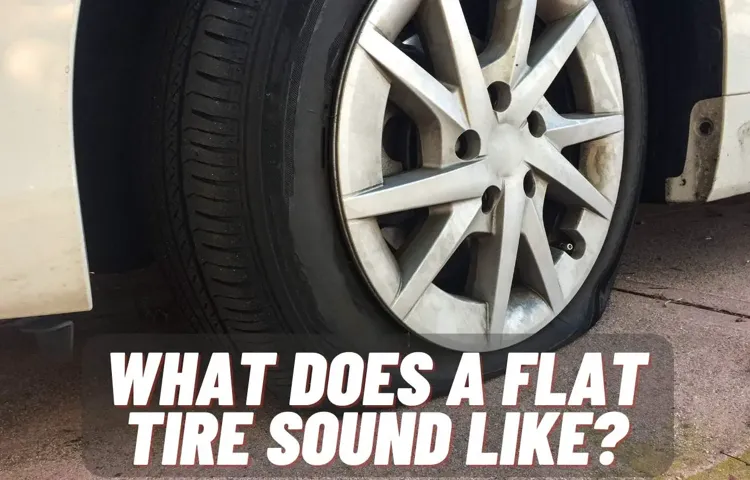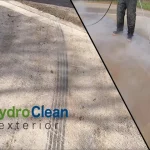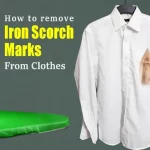Have you ever been driving down the road, and suddenly, you hear what feels like a flat tire? It’s as if you can feel your car lurching and the sound is so overwhelming that you’re certain it’s flat. You pull over and check, but to your surprise, the tire is perfectly fine. This can be a frustrating and perplexing experience for any driver.
But why does it sound like your tire is flat when it’s not? There are a few different reasons why this might happen. One of the most common causes is road noise. Certain road surfaces can create a humming or buzzing sound that feels like it’s coming from your tires.
This is especially true on highways or freeways, where the constant vibration of passing cars can contribute to a louder than usual road noise. Another culprit could be worn or damaged wheel bearings. Over time, the bearings in your wheels can wear down or become damaged, causing a growling or grumbling sound.
This sound can seem like it’s coming from your tires, which can be confusing. It’s important to have your bearings checked and replaced if necessary, as worn bearings can lead to more significant problems down the line. Additionally, uneven tire wear can cause strange noises and vibrations.
If your tires have worn unevenly, they may make a thumping or thudding sound as they rotate. This is more common with older tires or tires that haven’t been rotated regularly. In conclusion, there are several reasons why it might sound like your tire is flat, even when it’s not.
While it can be frustrating, it’s important to have your car checked by a professional if you notice any unusual noises or vibrations. Don’t ignore them – getting your car checked out early could save you costly repairs down the line.
Table of Contents
Possible Causes
It can be alarming when your tire sounds like it’s flat, but upon inspection, you find that it’s not. Several factors can cause this sound, such as worn-out or unevenly worn tires. Tires play a vital role in ensuring your car’s stability and safety on the road, and when they’re worn out, they can produce an irritating noise.
Another possible cause is a damaged wheel bearing. When the bearing is damaged, it may produce a humming or grinding sound, which can be similar to a flat tire sound. Another factor that can cause a strange tire sound is debris, such as rocks, nails, or glass stuck in the tire treads.
These items can produce a clicking or ticking noise. Under-inflated tires can also be the culprit. When a tire is underinflated, its sides might touch the road’s surface and produce a flapping sound, resembling a flat tire noise.
If you experience any of these issues, it’s best to have them checked out by a mechanic or tire professional to ensure your safety on the road.
Weather Conditions
Possible Causes of Weather Conditions Weather conditions can vary greatly, depending on the time of year, location, and other factors. There are many possible causes for these variations, including the Earth’s atmosphere, the position of the sun, and human activities. One of the main factors that affects weather conditions is the Earth’s atmosphere.
This layer of gases surrounding the planet is responsible for absorbing and reflecting sunlight, and it also plays a crucial role in regulating the planet’s temperature. The position of the sun also has a significant impact on weather conditions, as it is the ultimate source of heat and light for the planet. Other factors, such as air pressure and wind patterns, can also contribute to changes in weather patterns.
Finally, human activities, such as burning fossil fuels and deforestation, can have a significant impact on the Earth’s climate, leading to changes in temperature and precipitation patterns over time. By understanding the various factors that contribute to weather conditions, we can better prepare for and adapt to changes in our environment.

Tire Wear and Tear
Tire wear and tear can be a frustrating and costly problem for drivers. There are several possible causes of tire wear and tear, including improper inflation, misaligned wheels, and aggressive driving. When tires are underinflated or overinflated, they can wear unevenly and develop bald patches.
Misaligned wheels can also cause uneven wear as the tires are forced to move in different directions. Aggressive driving, such as hard braking and accelerating, can cause excessive friction and wear on the tires. Additionally, driving on rough or poorly maintained roads can also contribute to tire wear and tear.
To avoid these problems, it’s important to monitor tire pressure regularly, have your wheels aligned periodically, and drive conservatively. By taking care of your tires, you can extend their lifespan and enjoy safer, smoother rides on the road.
Alignment Issues
If you’re experiencing alignment issues with your car, there could be a few possible causes. One common culprit is worn-out or damaged suspension components, such as ball joints, control arm bushings, or tie rods. Another possibility is that your wheels aren’t properly balanced or have uneven wear, which can cause pulling or shaking while driving.
Additionally, if your car has been in a collision, the frame could be bent or twisted, affecting the way your wheels sit on the road. It’s important to address alignment issues as soon as possible, as they can lead to further damage or safety concerns down the line. Don’t hesitate to bring your car to a trusted mechanic for an inspection and necessary repairs.
Suspension Issues
Suspension issues in a vehicle can be caused by several things, but one of the most common culprits is worn-out or damaged shock absorbers. Shock absorbers are responsible for ensuring that the vehicle’s suspension system functions properly, and when they fail, the ride quality can suffer significantly. Other possible causes of suspension issues include damaged struts or springs, worn-out bushings, or even misaligned wheels.
It’s essential to have these issues diagnosed and repaired promptly to not only improve the vehicle’s handling but also to ensure the safety of all passengers. If you’re noticing any signs of problems with your suspension, such as a bumpy ride, unusual noises, or uneven tire wear, it’s best to bring your vehicle to a professional mechanic for a thorough inspection. Don’t put your safety at risk by ignoring these warning signs; it’s always better to be safe than sorry when it comes to suspension issues in any vehicle.
What to Do
If you hear a sound that makes you think one of your tires is flat but they all appear to be fully inflated, there could be a few different reasons why. First, check to make sure the lug nuts on the tire in question aren’t loose or missing. Loose lug nuts can cause the wheel to wobble and create a noise that sounds like a flat tire.
Additionally, if you recently hit a pothole or curb, you might have damaged the tire or wheel. Take a close look at the tire for any visible signs of damage, like bulges or cuts. If you don’t see any damage and the lug nuts are tight, you might have a wheel bearing issue.
A bad wheel bearing will create a humming or grinding noise that can sound like a tire is flat. Regardless of the reason, it’s always a good idea to have any unusual noises or vibrations checked out by a professional mechanic to ensure your safety on the road.
Check Tire Pressure
One of the most important things you can do to ensure your car is running smoothly is to regularly check your tire pressure. This is a quick and easy task that can save you money on gas and prevent flat tires. First, locate your car’s manual or the sticker on the inside of the driver’s side door.
This will tell you the recommended tire pressure for your vehicle. Use a tire pressure gauge to check the pressure of each tire individually, adding or releasing air as needed to match the recommended pressure. It’s important to do this when the tires are cool, as the pressure can change with temperature.
Make sure to check your tire pressure at least once a month, and before long trips. Not only will this prolong the life of your tires, but it will ensure you are driving safely on the road.
Inspect Tires for Damage or Wear
When it comes to inspecting your tires for damage or wear, there are a few things to keep in mind. First and foremost, look for any cracks, cuts, punctures, or bulges on the tire’s surface. These can all be signs of damage or wear, and should be addressed immediately.
Additionally, ensure that your tires are properly inflated and have enough tread depth. This not only improves handling and fuel efficiency, but also helps prevent skidding or hydroplaning in wet conditions. If you notice any of these issues, it’s important to have your tires inspected by a professional as soon as possible.
Staying on top of tire maintenance not only ensures your safety on the road, but also prolongs the life of your tires.
Get a Professional Inspection
If you are purchasing a property, it is important to get a professional inspection before finalizing the deal. Even if the property looks good on the surface, an inspection can reveal any underlying issues that could end up costing you thousands of dollars in repairs later on. A professional inspector will thoroughly examine the property for any defects, damages, or potential problems that could affect the safety of the home or its value.
This includes examining the roof, foundation, electrical and plumbing systems, and other major components of the property. By getting a professional inspection, you can be sure that you are making a smart investment and avoiding any unpleasant surprises down the road. So, before you sign on the dotted line, make sure to hire a professional inspector to give you the peace of mind you need.
Conclusion
In the end, the mysterious sound emanating from your tire is nothing more than an auditory illusion – a sly trick played by the complex workings of your vehicle’s suspension and tire pressure system. But fear not, for by paying closer attention to the subtle nuances of your car’s audible behavior, you can stay one step ahead of your tires and ensure that you’re always cruising in smooth, serene style.”
FAQs
What are the common reasons why my tire sounds flat even if it’s not?
The most common reasons for this are road conditions, tire wear and tear, and alignment issues.
Can low tire pressure cause a flat-like sound?
Yes, low tire pressure can cause the tire to flatten and make a thumping or humming sound.
Is it safe to drive when my tire is making a flat-like sound?
It’s not recommended to drive on a tire that’s making a flat-like sound as it may indicate a potential issue with your tire.
What should I do if my tire is making a flat-like sound?
You should check the tire pressure and examine the tire for any visible damage. If you can’t find any issues, have a professional inspect it.
Can a bad wheel bearing cause a flat-like sound?
Yes, a worn-out wheel bearing can cause a similar sound to a flat tire, but it’s usually accompanied by other symptoms such as vibration and wobbling.
How do I know if my tire is worn out and causing the flat-like sound?
Check the tread depth of your tire using a penny’s head. If the tread depth is less than 2/32 of an inch, your tire is worn out and should be replaced.
Can a bent rim cause a flat-like sound?
Yes, a bent or damaged rim can cause the tire to wobble and make a similar sound to a flat tire. Have a professional inspect it to confirm the issue.



